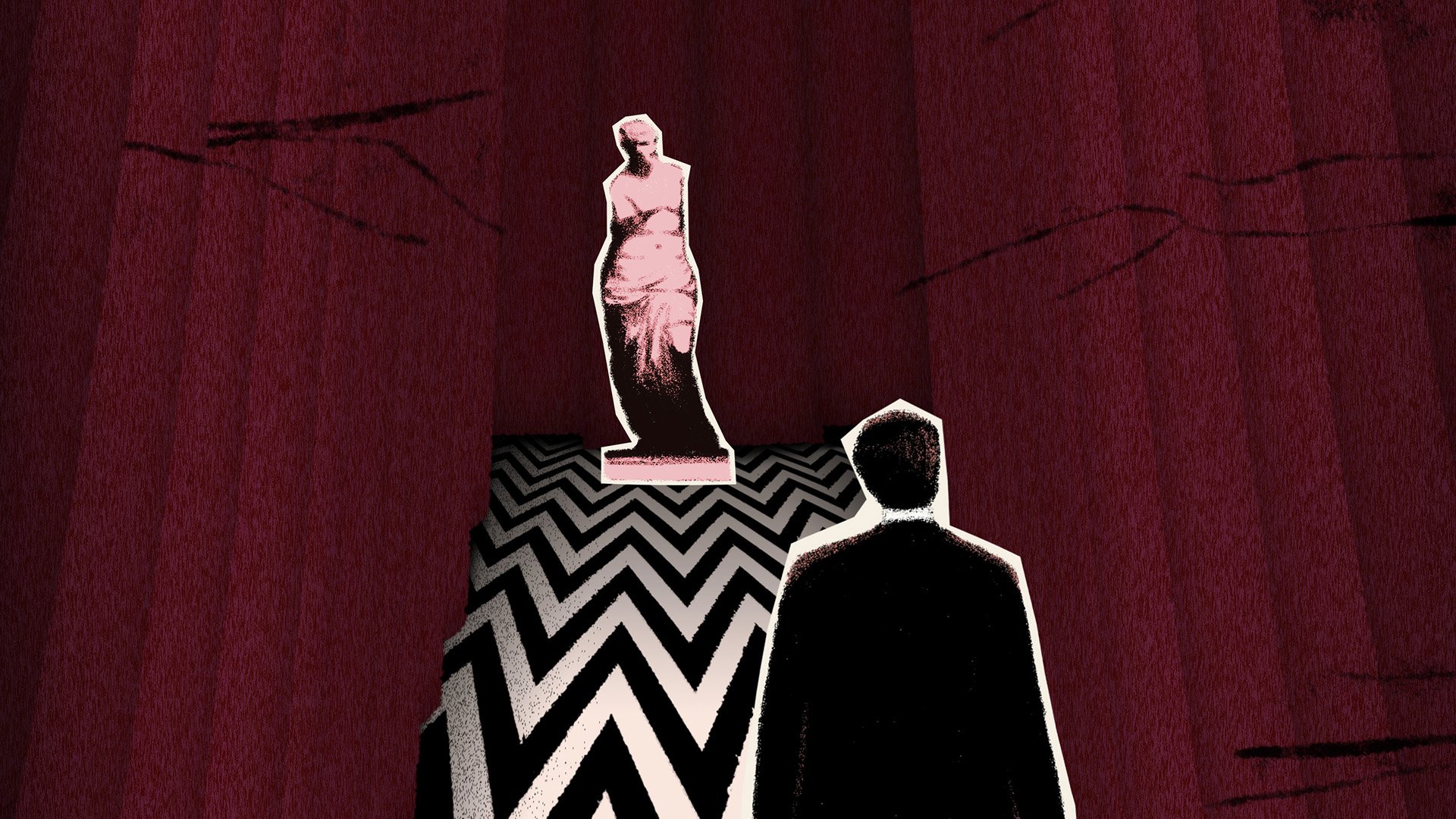David Lynch: The Creative’s Creative
Words Thomas Patrick
Illustration Martina Reyes
May 19, 2025
David Lynch: The Creative’s Creative
It is fitting that one of the last pieces of work by David Lynch was portraying the legendary director John Ford in Steven Spielberg’s The Fabelmans. In the final scene, Lynch as Ford gives Sammy Fabelman basic advice on how to create an interesting scene (a true story that happened to a young Steven Spielberg). While it may seem like a neat little cameo, it was much more a case of art imitating life. Lynch was a man of many talents, but perhaps his most generous was his devotion to the creative life and helping fellow artists find their own creative path. The passing of David Lynch has caused an outpouring of admiration and love from multiple creative industries and is a testament to his standing as a man of art.
David Lynch’s impact on cinema and television is hard to quantify. Perhaps the best way to illustrate it is how the term Lynchian has become a widely used adjective in cinema. To be Lynchian is to be dark, surreal, and original. Many of his films, notably The Elephant Man (1980), Blue Velvet (1986), and Mulholland Drive (2001)—named the greatest film of the 21st century by a BBC survey—are lauded as some of the best and most important films in the canon of Hollywood, and he was nominated for Best Director at the Academy Awards for each. On television, the three seasons of his “Lynchian” crime drama Twin Peaks (1990-1991/2017) became a cultural phenomenon. Even the failure, by Lynch’s own admission, of his adaption of Frank Herbert’s Dune has developed a cult following. For anyone living or looking to live a creative life, Lynch’s journey is one that should be followed. Lynch never shied away from the uncomfortable truth that making art is difficult, but he also debunked the theory that only the struggling artist was a true artist. To Lynch, creativity should never be a struggle, but a beacon of joy and light in a creative’s life.
The seeds of David Lynch’s style were planted during his time at the Pennsylvania Academy of the Fine Arts, where he was studying to become a painter. Lynch often spoke about living as a poor student in Philadelphia and how the city inspired him. In one discussion, he described Philadelphia as such: “There was fear, there was violence, there was despair and sadness, there was a feeling of insanity and a kind of knowledge of corruption.” All of these would become hallmarks of his storytelling. He spent three semesters at the Pennsylvania Academy of the Fine Arts before moving to LA to study filmmaking at the AFI Conservatory. It was here that his famous debut film, Eraserhead, was developed. The body horror film took several years to produce and cost $100,000 to make, with a minimal crew. As with much of Lynch’s work, it initially failed to find an audience, only to become a highly distinguished piece of art in the coming years. In 2004, Eraserhead was chosen for preservation in the United States National Film Registry for being "culturally, historically, or aesthetically significant.”
To celebrate David Lynch for just being a filmmaker would be a grave discredit of the man. As the title denotes, he was much more. Although he moved away from art to become a filmmaker, Lynch always maintained that side of himself and produced paintings, sculptures, and drawings throughout his career, as well as being an actor, writer, photographer, and musician. He has had exhibitions in cities across the globe, including London, Copenhagen, Paris, and New York. To Lynch, each art form was undertaken with the same pursuit: to explore his creativity. In today’s society, where artists increasingly find themselves boxed in by the market and pressured to stay in their lane, Lynch demonstrated what it meant to have full creative freedom.
It wasn’t just in art that Lynch had strong passions. His philosophy for a good creative life was famously given at the Maharishi University of Management commencement speech when he told students to meditate regularly and drink coffee. In true Lynchian style, he threw himself into both. His coffee consumption was legendary, and in an interview with Vice, Lynch admitted to once drinking twenty cups a day before cutting down to a more manageable ten. This love of coffee led him to set up his own coffee line called David Lynch Signature Cup.
His second great passion outside of the arts was transcendental meditation (TM), which is also what he will be remembered for. After being introduced to it in 1973, Lynch has credited TM as being the foundation of his life through “effortless access to unlimited reserves of energy, creativity, and happiness deep within.” The David Lynch Foundation, founded in 2005, is dedicated to helping at-risk populations improve their lives through the practice. Reaching this high plane wasn’t just for the lucky few; Lynch made it his goal that everyone should have access to this gift through his foundation.
Like his films, there is always a new layer to discover about David Lynch. Mulholland Drive is famously ambiguous, with Lynch leaving the plot and message of the film for the audience to interpret as they will. And yet, with the DVD release, he provided ten clues to decipher the film's narrative. It is the same with his creative life and work. We see a man unbridled by constraints, leading a full creative life that seems unattainable. However, if you watch any interview with David Lynch, you will see that he generously provides all the clues to help everyone realize their true creative potential.

